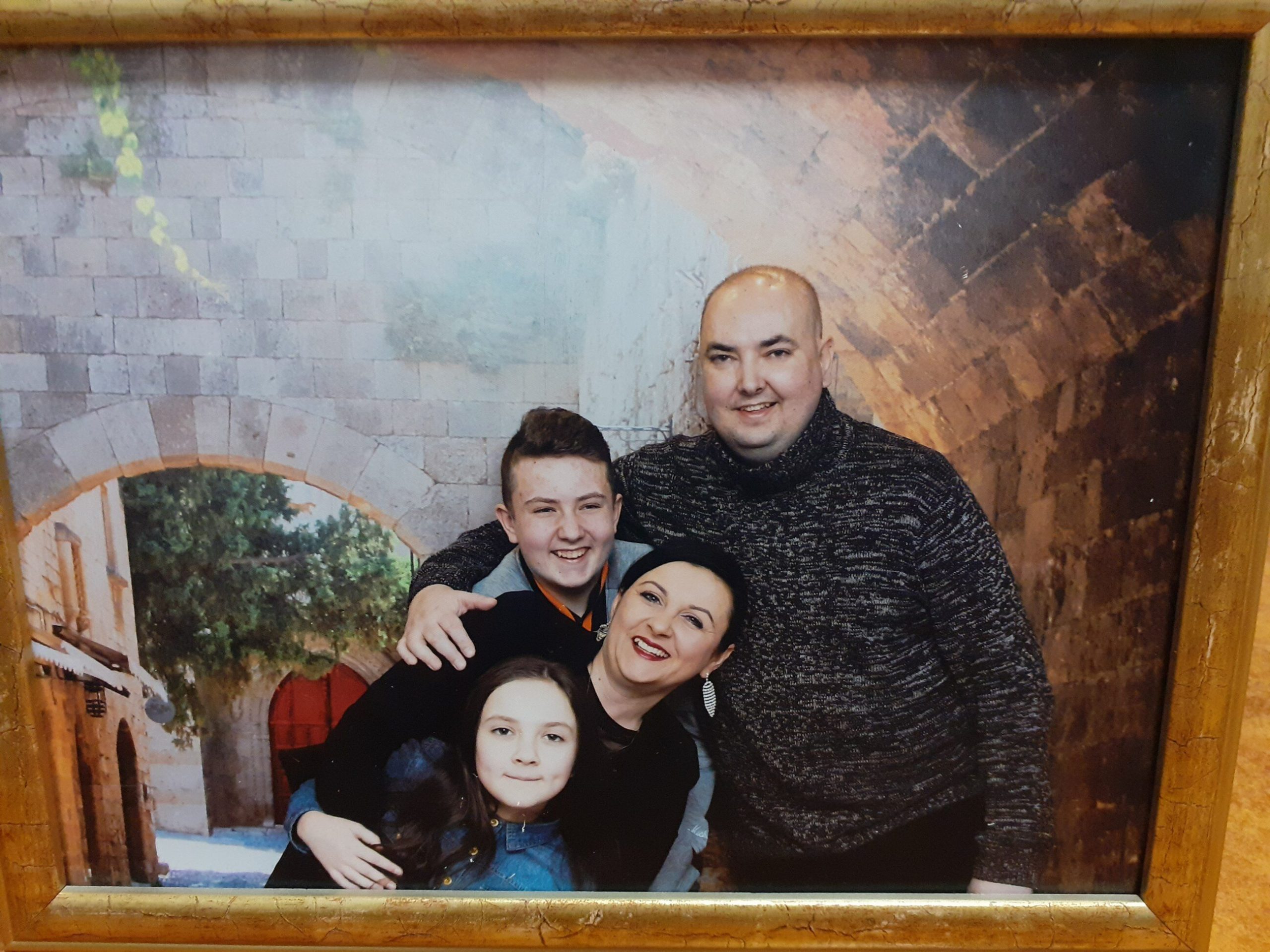About a certain love that does not die…

When a serious illness appears in a person’s life and the announcement of imminent death, either one’s own or that of a loved one, the world falls apart. Anger, endless fear, physical suffering, despair, attempts to understand, a violent search for help… In such dramatic moments, Caritas organizations come to the rescue and run hospices almost all over Poland, providing comprehensive support to the sick and their families.
One of such families, Mr. and Mrs. Ilona and Wojciech Chmieleccy, in the last stage of Mr. Wojciech’s life, received care at the Hospice. Saint Mother Teresa of Calcutta in Kielce. Dominika Borkowska, the hospice volunteer coordinator of Caritas Kielecka, talks to Mrs. Ilona about life, illness, hospice and love.
DB: Mrs. Ilona, your life changed completely when you were diagnosed with the disease. What was it like “before”…?
IC: We were young and just happy. We got married at the end of our studies, two years later a son was born, then a daughter. The husband was a surveyor; it was his passion. He traveled a lot. We made up for these separations by spending a lot of time together when he came back: cinema, theater, trips to the mountains, holidays, meetings with friends, of whom we had many. Wojtek was a wonderful husband, but also a wonderful father and always found time for his children. Nothing big, but we felt that the world was at our feet and we couldn’t imagine that this nice bubble would burst.
And then came the devastating diagnosis… How did you manage to cope with it?
It didn’t happen suddenly. When Wojtek came back, I sometimes noticed that he was in a state of “suspension”, there were problems with concentration, speech, numbness in his hand, and finally loss of consciousness. Initially, we explained it by the fact that he was overworked and didn’t eat regularly… The diagnosis came in 2008. Brain tumor, glioma. Surgery, radio – and chemotherapy. But the disease progressed, paralysis, speech disorders, sometimes he didn’t recognize us… We adapted the apartment to his needs, one room looked like a hospital room, I moved to the kitchen to leave room for the children. They matured quickly. They were brave, they learned to call the ambulance, they kept an eye on their studies, they didn’t complain… But growing up, my son couldn’t count on his father’s presence, my daughter and I couldn’t go shopping for girls… I slept like a mouse, alert to see if Wojtek was having any breathing problems… And in the morning I had to go to work. Providence was watching over me: I was promoted then and there was money for help and equipment…
You had a lot of friends. Did they help?
This is a difficult topic. When Wojtek was healthy, the calls stopped. Someone always needed advice, wanted to meet… When my husband got sick, there was a strange silence. That hurts. I know, it’s difficult to call and ask: “how bad is it?”, “is he alive?”, but the patient’s family really waits for every sign of interest and presence. I would like to thank everyone who showed up during this period, usually with similar experiences.
2020 came, pandemic. And a dramatic July…
In the spring, my husband’s condition worsened, and in July, the emergency room doctor didn’t even examine Wojtek, she only said, after analyzing the documents, that it was agony and it would be best if he died at home. I was blindly looking for help on the Internet and came across a hospice in Kielce. In the morning, I got a call and the manager decided: please bring my husband. When I was in the ambulance with him, I was terrified. Wojtek’s eyes were rolled and he was limp. When I got there, I couldn’t see what conditions I was leaving him in, because of Covid… It was Friday, I was crying until Sunday. I didn’t know that a person had so many tears in him.
Did you feel guilty that your husband stayed in hospice?
Huge. But then a miracle happened. First visit. Wojtek is conscious, smiling, well-groomed. Then another one. And each time it got better and better. The nurses taught him how to speak and sometimes he called me “wife”, “Ilona”, finally I even heard “I love you”… It’s impossible to describe. The care of the staff, professional, friendly, helpful people… We even celebrated Wojtek’s 45th birthday… And the relief when he gave me a thumbs up and showed me not to feel guilty that he was doing well…
He really wanted to live, didn’t he?
Yes, even when it was very difficult. He passed away after two years in hospice. We got two more years! After his death, I found his notes. He wrote that he had to live, that he had someone to support, that he had to manage so that his children could grow up. And he succeeded. When the son passed away, he was 21 years old and the daughter was 17. When we first heard the diagnosis, he was given six months to live. We were in this together for another 15 years…
Thank you very much for the interview.
More about the Caritas hospice mission, stories of patients and their families, volunteering and opportunities to support Caritas hospice work can be found at hospicjowo.caritas.pl






